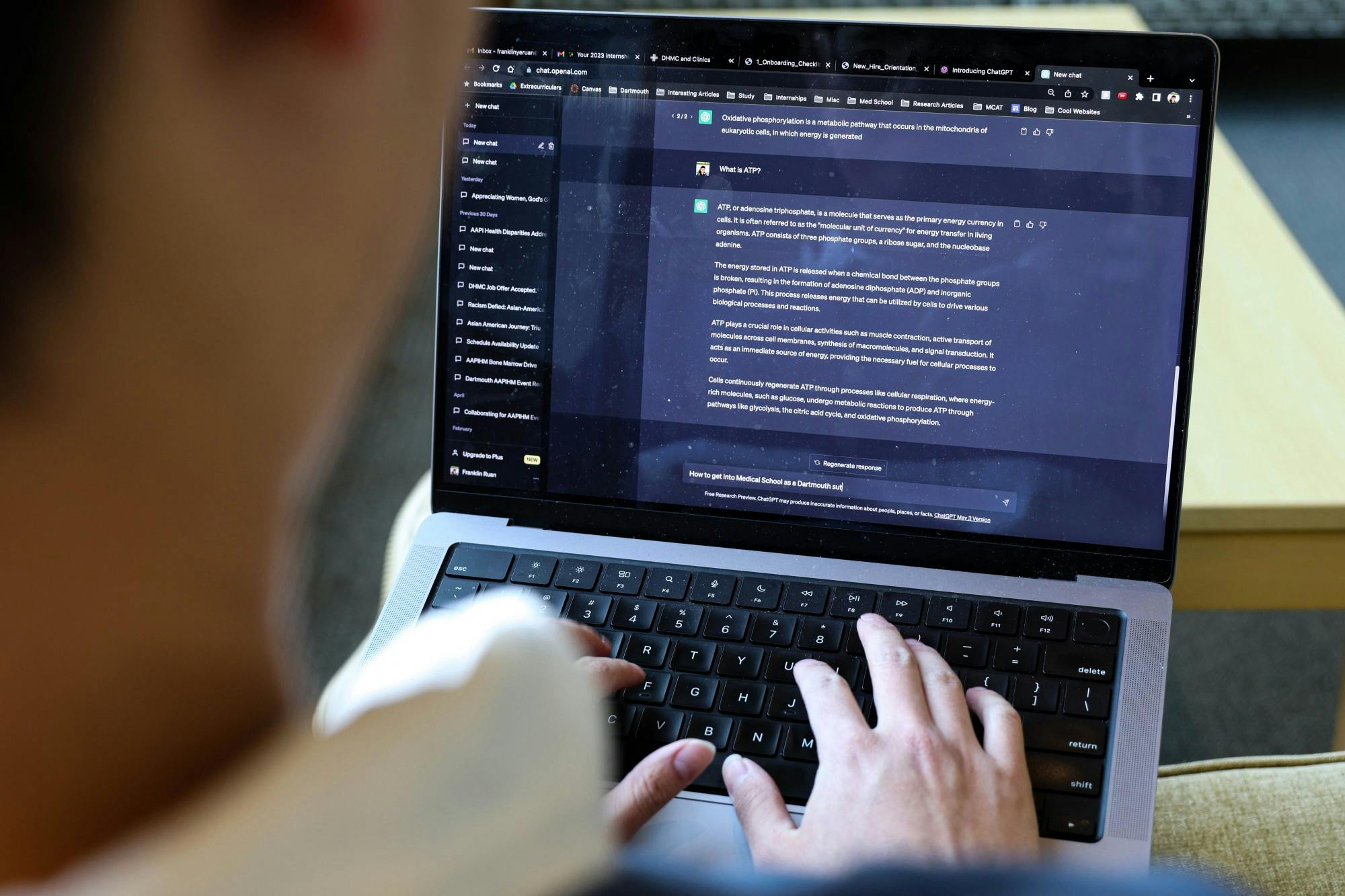Since the introduction of ChatGPT — an online artificial intelligence chatbot — professors have addressed its use in their syllabi, and some have begun to incorporate it into their assignments.
According to Reuters, ChatGPT became the fastest growing consumer application in history after garnering 100 million users within two months of its launch in November 2022. The website now has over 1.5 billion monthly visitors.
Asian societies, cultures and languages professor James Dorsey said he is still “confused” and figuring out the appropriate use of AI in classrooms. He suggested that AI tools may be more appropriate to use in scientific fields than the humanities.
“There are certain academic tasks that are product-oriented and process-oriented, and I suspect that in the sciences, it is generally product-oriented,” Dorsey said. “However, in the humanities, I think it’s process-oriented. Writing essays is merely a byproduct of what I’m really hoping for students to do, which is to develop a thought process that will carry over into other things [they] do.”
However, Dorsey added that he is planning to “experiment” with the usage of ChatGPT in his class ASCL 70.25, “Translating East Asian Languages: Theory and Practice.”
Elsa Coulam ’27 said that her first year seminar class, WRIT 07.42, “The Art of Human Dialogue,” involves an assignment in which students will write in “conjunction” with ChatGPT. In the class, Coulam read the article “Ghosts” by Vauhini Vara, in which Vara prompted GPT-3 — a language prediction model — to write about her sister’s death by feeding it words such as “candor,” “apparently” and “begat candor.”
Coulam noted that ChatGPT provides benefits such as grammar corrections, but she added that there are applications that serve a similar purpose, such as Grammarly, which many students already use. Similarly, Mehar Bhasin ’27 said that other benefits of ChatGPT include its ability to clarify mathematical steps.
“For calculations that are super hard, if we can somehow integrate our learning, I think students can focus more on the concept rather than the calculation part,” Bhasin said.
Dorsey also commented that ChatGPT poses risks to the Academic Honor Principle.
“ChatGPT is really the most enormous, sophisticated, efficient plagiarism machine that’s ever been invented,” Dorsey said.
At the same time, Dorsey noted that ChatGPT has certain limitations, such as analyzing literary texts and capturing nuances when translating languages
“Particularly when you’re making the jump between Romance languages or Western languages to East Asian languages, I don’t think [ChatGPT] is there yet,” Dorsey said.
Bhasin said that professors will “notice” if students use ChatGPT on their assignments.
“Especially for those [using] it for the first time … ChatGPT just provides this flowery introduction to the idea, but it doesn’t really go into the depth,” Bhasin said. “But I think this [quality] is very easily hidden through STEM … I’m assuming that it is probably easier for AI to do math problems than to write in English.”
Dorsey said that he realizes that he may be unable to detect students’ use of ChatGPT in their assignments. However, Dorsey said he is “pretty sure” about one case of a student using ChatGPT for an assignment because “the essay included quotes from the novel that were not quite right.”
Dorsey added that in an educational environment, professors are able to outline rules surrounding the use of AI, but the ethics of using AI may not be as clear in other contexts.
“Outside of the academic environment … I think a change is coming, where everything is going to be rethought,” Dorsey said.
In reference to philosopher Marshall McLuhan, who coined the phrase “the medium is the message,” Dorsey said that the medium people use to communicate influences them.
“What [McLuhan] means by that is the medium that we engage with ‘massages’ us and shapes us,” Dorsey said. “It loosens and relaxes abilities that we otherwise would keep sharp and be exercising. In that sense, ChatGPT … is going to massage our brains into mush.”
Coulam said that in order to be a “responsible” user of ChatGPT, people should not pass off its work as their own.
“If you do use it, make sure you cite it, and your teacher knows that you’re using it, or you get permission,” Coulam said.
Dorsey noted that students should prioritize their education rather than looking for “shortcuts” for a good grade.
“For students and faculty, we need to have a more open discourse about ChatGPT, rather than it just being one protocol on a piece of paper saying that ChatGPT is not allowed,” Bhasin said. “I think there should be more discussion on this topic.”




